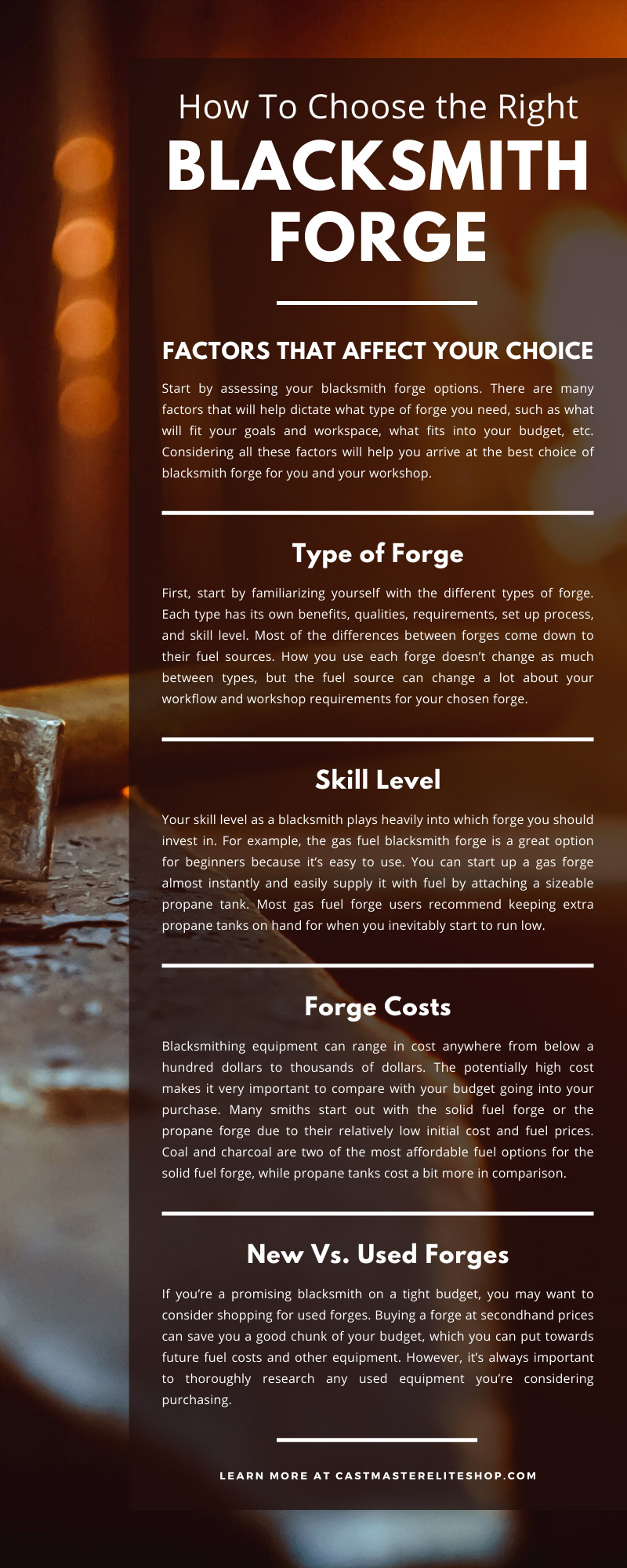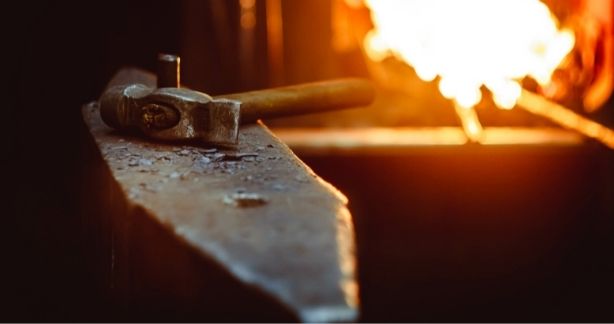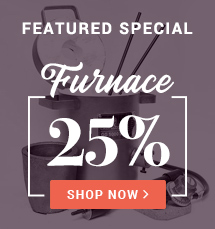Whether you’re starting out as a newbie to blacksmithing or you’re a seasoned professional, everyone will end up looking for a new forge at some point in their blacksmithing journey. After some initial searches, you will quickly realize just how many types of forges there are to choose from, which can make the decision difficult for some smiths. If you’re stumped when it comes to how to choose the right blacksmith forge for you, keep reading to find points that will help you make your decision.
Factors That Affect Your Choice
Start by assessing your blacksmith forge options. There are many factors that will help dictate what type of forge you need, such as what will fit your goals and workspace, what fits into your budget, etc. Considering all these factors will help you arrive at the best choice of blacksmith forge for you and your workshop. Keep reading for an in-depth discussion on these factors. Learning about them will help you understand what forge-buying aspects to focus on.
Type of Forge
First, start by familiarizing yourself with the different types of forge. Each type has its own benefits, qualities, requirements, set up process, and skill level. Most of the differences between forges come down to their fuel sources. How you use each forge doesn’t change as much between types, but the fuel source can change a lot about your workflow and workshop requirements for your chosen forge. The most common types of blacksmithing forge are the gas forge, the solid fuel forge, and the induction forge. These fuel types are all great options—though depending on your skill level, budget, and workshop specifications, one may be a better choice than another.
Skill Level
Your skill level as a blacksmith plays heavily into which forge you should invest in. For example, the gas fuel blacksmith forge is a great option for beginners because it’s easy to use. You can start up a gas forge almost instantly and easily supply it with fuel by attaching a sizeable propane tank. Most gas fuel forge users recommend keeping extra propane tanks on hand for when you inevitably start to run low. This steady supply of fuel means the forge will burn brightly and evenly, ensuring the quality of your projects.
Induction forges work similarly to gas forges. You can light them quite quickly with an electrical connection. However, the induction forge is the weakest of the bunch, so it may be tricky for beginners to use.
Blacksmithing veterans, on the other hand, can enjoy the convenience of the gas or induction forge, but they lean more towards solid fuel sources. These forges can reach the highest temperatures, which makes them ideal for professional metalworkers who smelt a variety of ores and precious metals.
Forge Costs
You should also take your budget into account when considering blacksmithing forges. Blacksmithing equipment can range in cost anywhere from below a hundred dollars to thousands of dollars. The potentially high cost makes it very important to compare with your budget going into your purchase.
So, which forge is the most cost-effective? Many smiths start out with the solid fuel forge or the propane forge due to their relatively low initial cost and fuel prices. Coal and charcoal are two of the most affordable fuel options for the solid fuel forge, while propane tanks cost a bit more in comparison.
Induction forging is still a relatively new and evolving technology, which makes it rarer and more difficult to find at a cheaper price. However, induction heating is the most efficient type of heating, which may save you money on fuel prices in the end. If you are on a strict budget, though, then either the solid fuel forge or propane forge is your best choice.
New Vs. Used Forges
If you’re a promising blacksmith on a tight budget, you may want to consider shopping for used forges. Buying a forge at secondhand prices can save you a good chunk of your budget, which you can put towards future fuel costs and other equipment. However, it’s always important to thoroughly research any used equipment you’re considering purchasing. Nefarious online sellers may gloss over damages or lie about the age of equipment. As such, some blacksmiths choose to exclusively shop new products to avoid these risks. If you do choose to buy secondhand, you should request to see up-to-date images of the forge from the seller to make sure they can back up what they’re advertising. If you’re still unsure, request to see the forge in person.
Where To Find a Forge
Now that you know what to consider when choosing your next forge, you might be asking where you should start looking. The good news is that you can find a variety of blacksmithing forge equipment right here at Cast Master Elite! You can find propane forge burner kits with everything you need to get started on your next project. Cast Master Elite also carries a variety of blacksmithing accessories and other tools, as well as blacksmithing-adjacent crafts such as jewelry-making tools and industrial tools. If you’re not sure where to get started on your research and shopping process, shop with us to find all you need.
Overall, there are many factors to consider when it comes to buying a new forge. We hope this guide has helped answer the questions you had and helped you understand how to choose the right blacksmith forge. If all else fails, reach out to us here at Cast Master Elite with questions about our products or recommendations. Don’t be afraid to reach out to the greater blacksmithing community online or locally as well. You can find helpful forums and pages online where blacksmiths gather to talk. Many professionals and veteran blacksmiths were in your shoes once and they would be happy to guide you and give you recommendations.







